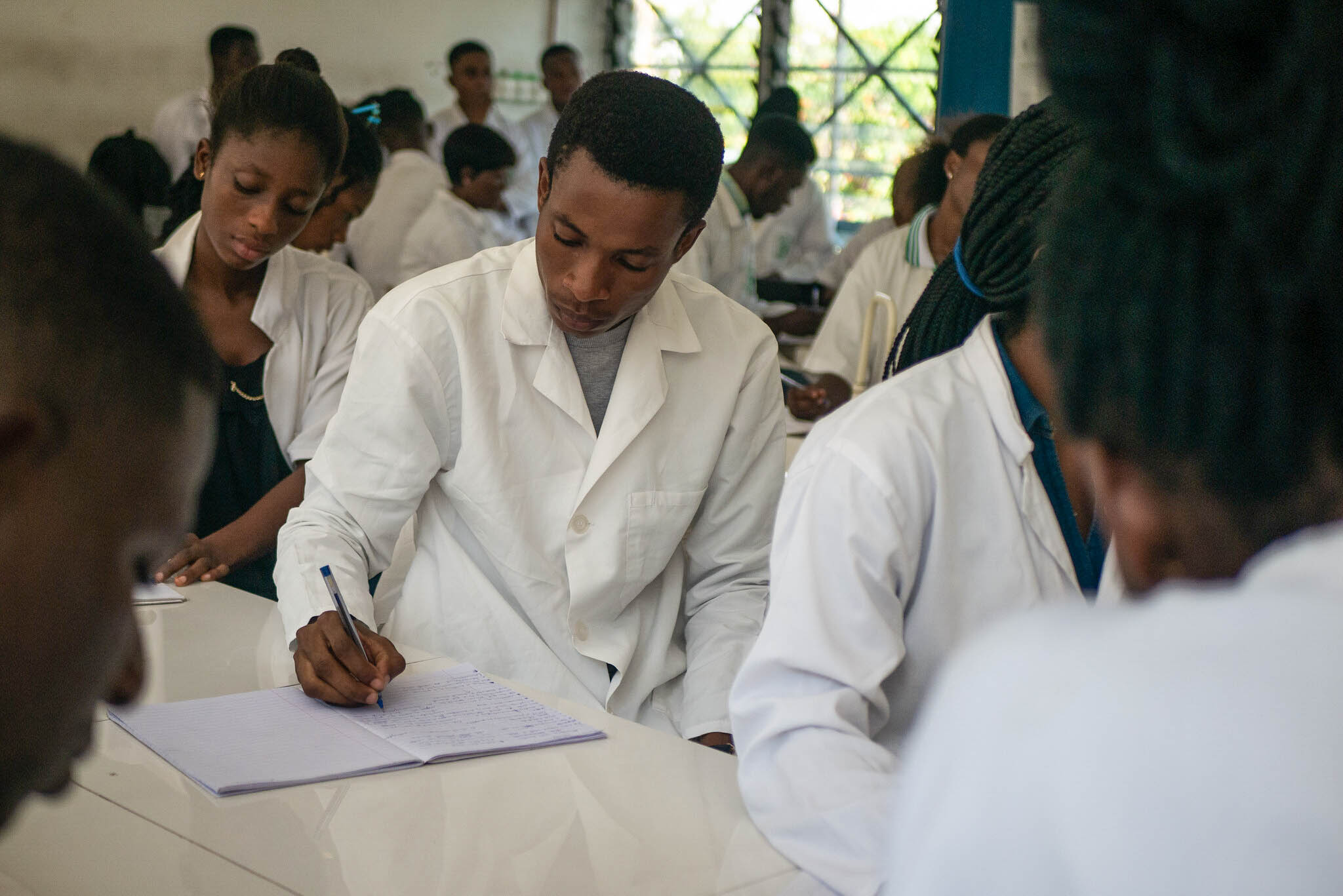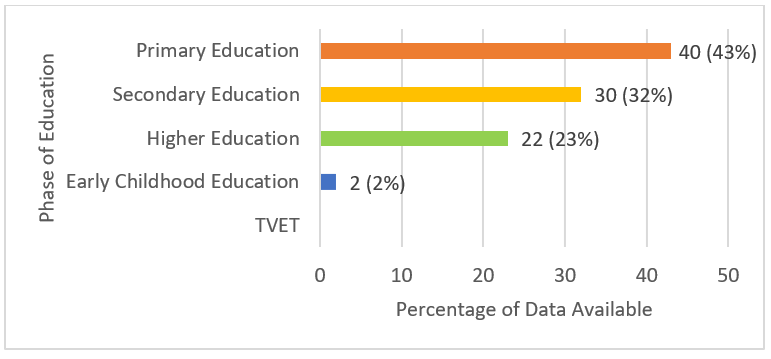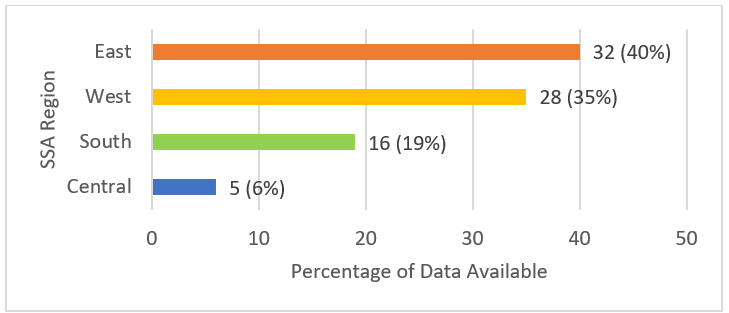Availability of education data in sub-Saharan Africa: what do we know?
In this blog, Samuel Asare, Research Manager at Education Sub Saharan Africa (ESSA) shares his reflections from our workshop with researchers to discuss ESSA's work in making education data more accessible to improve education.
This blog is part of ESSA's #Data4Education series.

In the last few years, issues around data availability has attracted much attention among education stakeholders. This is driven mainly by the recognition that education data is key in addressing low learning outcomes of students in Sub Saharan Africa. In this blog, I will share some insights from a project by Education Sub Saharan Africa (ESSA) to map existing education datasets in sub-Saharan Africa.
Data in this context refers to information collected through research which is stored as numbers or words and can be analysed multiple times.
The insight is based on analysis of education datasets collected between 2010 and 2020 in three data repositories. These repositories include the African Education Research Database, UK Data Archive, and DataFirst.
Though large numbers of datasets were not expected due to the general lack of education data, it was surprising that only 68 datasets on education in sub-Saharan Africa were identified.
These were explored to identify the phase of education and region of sub-Saharan Africa they address. Because of the limited number of repositories and datasets in this analysis, what is shared here is only meant to give an indication of what the issues might be and not to claim this is the situation.
Which phase of education is data addressing?
Majority (43%) of the datasets address primary education, followed by secondary education (32%). This is not surprising because of the poor learning outcomes among school children in recent times which has attracted the attention of funders and researchers to invest more resources to address the situation.
By contrast, there is comparative neglect of early childhood education (2%) and TVET (Technical and vocational education and training) (0%). This finding is consistent with a similar study with larger sample (Rose et al. 2019).
The neglect of early childhood education is a concern, considering its role in preparing children for school and future life opportunities. Likewise, TVET has been identified as key in addressing unemployment in the region.
It will be difficult to address low learning outcomes at the lower levels without high quality higher education. Research conducted to address challenges facing lower levels of education is mostly undertaken by researchers affiliated with tertiary education (universities and colleges) or analogous institutions.
Therefore, having data to improve tertiary education is key for the overall success of education delivery in sub-Saharan Africa.

Figure 1. Proportion of datasets by phase of education
Where is data coming from?
East Africa has the highest datasets (39%) followed by West Africa (35%). The region with the least datasets is Central Africa, accounting for 6%. East and Southern Africa are noted for large scale education surveys intervention evaluations such as datasets from Uwezo, African Population and Health Research Centre (APHRC) and Southern and Eastern Africa Consortium for Monitoring Educational Quality (SACMEQ).
The relevance of these datasets to education research might encourage high use by researchers. In contrast, data from West Africa is mainly demographic and health surveys and living standard surveys. It is also important to note that datasets included in the analysis come from English data repositories. This means regions with more non-English speaking countries (e.g., Central and West Africa) are more likely to be under-represented.

Figure 2. Proportion of datasets by SSA region
Based on this mapping, ESSA, Zizi Afrique and EdTech Hub held a virtual workshop in July that brought together education stakeholders with an interest in data access to discuss the topic: Unlocking data to tell the story of Education in Africa.
Participants discussed three main questions including:
-
Where should we aim to get to?
-
What are the next steps to get there?
-
Who else do we need?
The outcomes of the discussions are captured in quotes from the facilitators:
"We need to reach out to [the data] users and ensure we are engaging all key stakeholders including teachers. There should be greater consideration of use of the data even before data collection to ensure we are capturing the right information. If this is done correctly, it can improve learning and teaching."(Facilitator from Malawi)
"There should be increased equality in data availability and access. How can we encourage data sharing for those who don’t necessarily see the benefit in opening up their data?" (Facilitator from France)
"Open data in the education sector should be the default and not the exception to make access easier for all. Increasing access to education data will allow for greater utilisation for decision making. This is a process that will take time, concerted effort and collaboration." (Facilitator from Kenya)
"We should aim to have an online repository of education data with different levels of access for users. We should also work with the wider ecosystem of education data stakeholders/collectors." (Facilitator from Burkina Faso)
"We should put in place Applied Research centres to help solve the existing problems in the education sector and strengthen their capacities in making use of that data to improve education in Africa. This will help to bridge the gap between research and policy." (Facilitator from Nigeria).
"Let us maintain this momentum and energy to build better data infrastructure for Africa." (Facilitator from the UK)
What next?
We will continue to work together building a coalition with researchers like myself, students and policy makers. Our common goal is to make education data more accessible and make sure it is used for making positive change within schools, colleges and universities in sub-Saharan Africa.